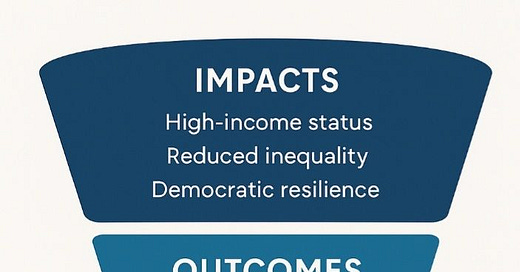Malaysia’s prolonged struggle to transition from a middle-income to a high-income nation is rooted in extractive political-economic institutions that resist creative destruction.
Applying insights from Why Nations Fail (Acemoglu & Robinson), one may argue that entrenched rentier elites and monopolistic structures stifle innovation, discourage entrepreneurship, and undermine inclusive economic development.
A decisive shift toward institutional reform and enabling creative destruction is imperative to rejuvenate Malaysia’s economic trajectory.
The multifaceted problems of economic development in the country is that Malaysia’s economy is constrained by:
Concentrated ownership and control in state-linked monopolies (GLCs)
Protectionist policies that deter foreign and domestic competition
Weak linkages between education systems and industrial needs
Patronage politics that perpetuate rentier capital over productive investment
These structural rigidities block the forces of creative destruction, preventing innovation-led growth and entrenching systemic inequality.
HERE'S a video-presentation to supplement this podcast.












